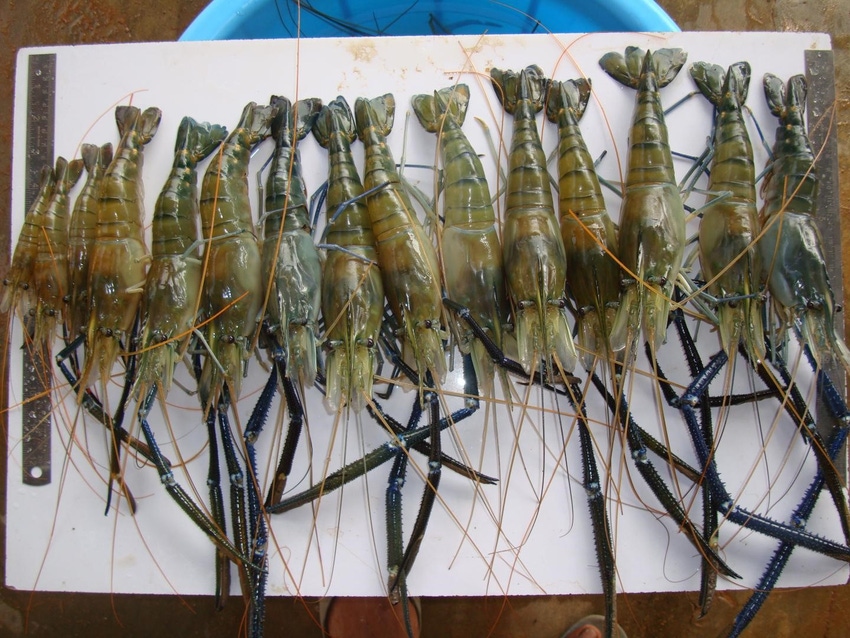Emergence of all-female prawn population could increase aquaculture yields and serve as natural agent to prevent spread of water-bound parasites.
September 5, 2019

Single-sex prawns could help alleviate poverty, reduce disease and protect the environment, according to researchers at Israel's Ben-Gurion University of the Negev (BGU) who have developed a monosex prawn that may make this winning trifecta possible.
In a groundbreaking study reported in Nature's Scientific Reports, the BGU group highlighted the development of a novel "super shrimp" that produces only female offspring. The emergence of an all-female population could both increase aquaculture yields and serve as a natural agent to prevent the spread of harmful, water-bound parasites.
To achieve an efficient biotechnology for all-female aquaculture in the economically important prawn Macrobrachium rosenbergii, the researchers achieved — for the first time — WW males using androgenic gland cells transplantation, which caused a full sex reversal of WW females to functional males. Crossing the WW males with WW females yielded all-female progeny lacking the Z chromosome, according to the announcement.
The research is being conducted by BGU professor Amir Sagi, who also serves as a member of the National Institute for Biotechnology in the Negev (NIBN), and doctoral student Tom Levy, in collaboration with Enzootic, a start-up company based in Beer-Sheva, Israel, that specializes in all-female monosex aquaculture biotechnologies.
"We were able to achieve the monosex population without the use of hormones or genetic modifications and, thus, address two major agricultural considerations: monosex populations and ecological concerns," Levy said. "Prawns serve as efficient biocontrol agents against parasite-carrying snails. Since we can now use monosex prawns, which do not reproduce, it reduces the hazard of prawns becoming an invasive species."
According to BGU, the publication follows a study published in Nature Sustainability in July showing that freshwater prawn species work as a biocontrol agent by preying on aquatic snail species. The snails serve as intermediate hosts of the parasite that causes schistosomiasis in sub-Saharan Africa.
Schistosomiasis is an acute and chronic disease caused by parasitic worms that can result in severe abdominal pain, diarrhea and blood in the stool.
"With monosex prawns at profit-maximizing densities, the prawns substantially reduce intermediate host snail populations and aid schistosomiasis control efforts," Sagi said. "Integrated aquaculture-based interventions can be a win-win strategy in terms of health and sustainable development in schistosomiasis endemic regions of the world."
In this study, Sagi and Dr. Amit Savaya of BGU joined forces with a large team of researchers around the world headed by Giulio De Leo of Stanford University to outline control strategies, drawing on both prawn aquaculture to reduce intermediate host snail populations and mass drug administration to treat infected individuals, the announcement said.
Source: Ben-Gurion University of the Negev, which is solely responsible for the information provided and is wholly owned by the source. Informa Business Media and all its subsidiaries are not responsible for any of the content contained in this information asset.
You May Also Like



